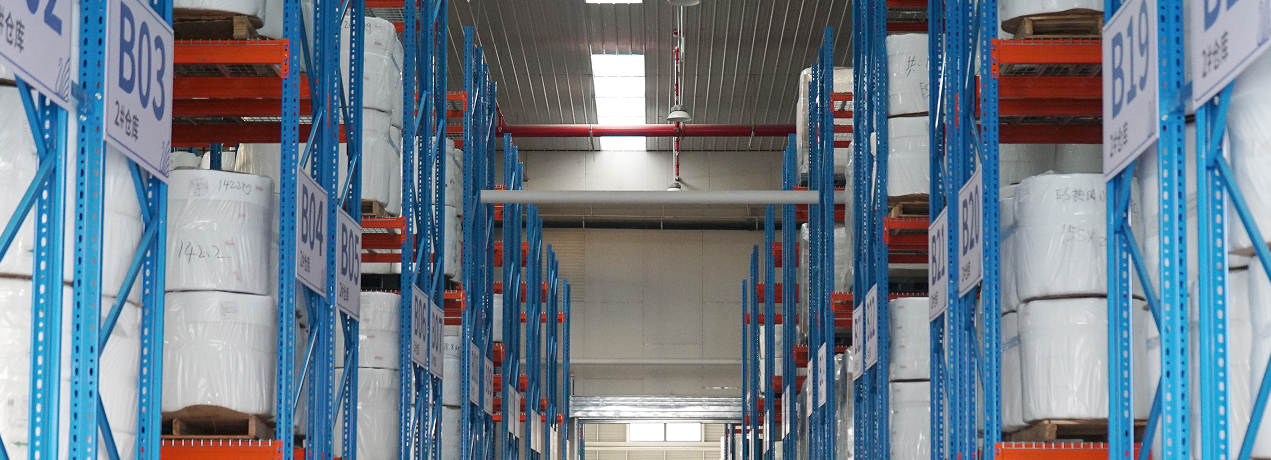NEWS CENTER
17
2025
-
10
Natural and Eco-Friendly Options: The Rise of Organic Premium Taped Diapers
Natural and Eco-Friendly Options: The Rise of Organic Premium Taped Diapers
Table of Contents
Introduction to Organic Premium Taped Diapers
What Are Organic Diapers?
Benefits of Using Organic Premium Taped Diapers
Eco-Friendly Materials Used in Organic Diapers
Sustainability in Parenting: Why It Matters
Choosing the Right Diaper: Factors to Consider
Cost and Affordability of Organic
Natural and Eco-Friendly Options: The Rise of Organic Premium Taped Diapers
Table of Contents
- Introduction to Organic Premium Taped Diapers
- What Are Organic Diapers?
- Benefits of Using Organic Premium Taped Diapers
- Eco-Friendly Materials Used in Organic Diapers
- Sustainability in Parenting: Why It Matters
- Choosing the Right Diaper: Factors to Consider
- Cost and Affordability of Organic Diapers
- The Future of Diapers: Trends and Predictions
- Conclusion
- Frequently Asked Questions
Introduction to Organic Premium Taped Diapers
As the world becomes increasingly aware of environmental issues and health concerns, parents are seeking products that align with their values. **Organic premium taped diapers** are emerging as a preferred choice, catering to both eco-conscious consumers and those prioritizing their child's health. This article delves into the rise of these eco-friendly options, examining their benefits, materials, and their role in promoting sustainable parenting.
What Are Organic Diapers?
Organic diapers are specially designed to be free from harmful chemicals and synthetic materials, making them a safer alternative for babies and the environment. Typically made from organic cotton or other biodegradable materials, these diapers offer a **gentler option** for delicate skin. Unlike conventional diapers, which may contain chlorine, fragrances, or latex, organic diapers aim to reduce exposure to allergens and irritants.
Understanding the Taped Design
The taped style of diapers refers to the way they are secured around a baby's waist. This design allows for a snug fit, reducing leaks and providing comfort for active infants. With advancements in technology, **organic premium taped diapers** now feature adjustable tabs and breathable materials, enhancing both functionality and comfort.
Benefits of Using Organic Premium Taped Diapers
Choosing organic diapers goes beyond environmental concerns. Here are several key benefits that make them an attractive choice for parents:
1. Healthier for Babies
Organic diapers are crafted from natural materials, significantly minimizing the risk of skin irritations and allergies. Parents can feel confident that their baby is protected from potentially harmful chemicals that can lurk in conventional diapers.
2. Eco-Friendly Production
The production of organic diapers often adheres to sustainable farming practices, which means using no pesticides or synthetic fertilizers. This process not only protects the environment but also promotes biodiversity.
3. Biodegradability
Unlike traditional diapers that can take hundreds of years to decompose, organic diapers are designed to break down more quickly when disposed of. This contributes to reducing landfill waste and environmental pollution.
4. Comfort and Breathability
Organic materials provide natural breathability, essential for preventing rashes and keeping babies comfortable. With soft, plush fabrics, organic diapers offer a gentle touch against sensitive skin.
5. Supporting Ethical Brands
Many companies producing organic diapers are committed to ethical practices, from sourcing materials to labor standards. By purchasing these products, parents support businesses that prioritize social responsibility and environmental stewardship.
Eco-Friendly Materials Used in Organic Diapers
Understanding the materials used in organic diapers helps parents make informed choices. Commonly utilized materials include:
1. Organic Cotton
Grown without harmful chemicals, organic cotton is soft and hypoallergenic, making it an ideal choice for diaper production.
2. Bamboo
Bamboo is a sustainable material that grows quickly and requires fewer resources. It possesses natural antibacterial properties, further enhancing its appeal for diaper manufacturing.
3. Biodegradable Superabsorbents
Many organic diapers incorporate biodegradable superabsorbent materials that offer excellent moisture retention while being environmentally safe.
4. Plant-Based Inks
Instead of synthetic dyes, brands often use plant-based inks for printing on the packaging and diapers themselves, reducing chemical exposure.
Sustainability in Parenting: Why It Matters
As the world faces climate change and resource depletion, sustainable parenting is more important than ever. Choosing products like organic diapers helps shape a better future for the next generation.
Encouraging Eco-Conscious Habits
By integrating eco-friendly products into daily routines, parents can instill sustainable values in their children from a young age. This approach not only benefits the environment but also promotes a sense of responsibility towards the planet.
The Ripple Effect
When consumers opt for organic products, they create a demand that encourages companies to adopt sustainable practices. This shift can lead to a broader change in the market, making eco-friendly options more accessible to everyone.
Choosing the Right Diaper: Factors to Consider
Navigating the myriad of diaper options available can be overwhelming. Here are essential factors to consider when selecting the perfect diaper for your baby:
1. Material Composition
Look for diapers that clearly specify their materials. Opt for those with organic certifications to ensure they meet health and environmental standards.
2. Absorbency
Evaluate how well the diaper absorbs moisture. Organic diapers utilize advanced technology to maintain dryness, so consider reviews and ratings from other parents.
3. Fit and Comfort
A good fit is crucial in preventing leaks and ensuring comfort. Many brands offer a range of sizes, so it's essential to choose the right size for your baby's weight and age.
4. Brand Reputation
Research the brands you're considering. Look for transparency in their manufacturing processes and commitment to sustainability.
5. Price Point
While organic diapers can be more expensive than conventional options, consider the long-term benefits. Investing in a higher-quality product can result in fewer rashes and a healthier baby.
Cost and Affordability of Organic Diapers
The cost of organic premium taped diapers can be a concern for many parents. While they may have a higher upfront cost, several factors contribute to their overall value:
1. Health Savings
By reducing the risk of diaper rashes and allergies, organic diapers can save parents money on medical expenses related to skin irritations.
2. Environmental Costs
Investing in organic diapers helps mitigate environmental costs associated with traditional diaper disposal. Parents can feel good knowing they are making a positive choice for the planet.
3. Bulk Buying Options
Many brands offer bulk purchasing options or subscription services that can help reduce costs over time. This approach also ensures you never run out of diapers at crucial moments.
The Future of Diapers: Trends and Predictions
As the market for organic diapers continues to grow, several trends and predictions are emerging:
1. Technological Advancements
Innovations in materials and absorbency technology will likely enhance the efficacy of organic diapers, making them even more competitive with traditional options.
2. Increased Availability
As consumer demand rises, more retailers are expected to carry organic diaper brands, making them accessible to a broader audience.
3. Eco-Friendly Packaging
The trend toward sustainability will extend beyond the diapers themselves, with more brands focusing on eco-friendly packaging solutions.
4. Education and Awareness
As parents become more informed about the benefits of organic diapers, educational campaigns will help spread awareness, further driving market growth.
Conclusion
The rise of **organic premium taped diapers** marks a significant shift in parenting practices toward sustainability and health consciousness. By opting for these eco-friendly options, parents can ensure their babies are protected from harmful chemicals while contributing positively to the environment. As technology and consumer demand evolve, the future of organic diapers looks promising, making them an excellent choice for families everywhere.
Frequently Asked Questions
1. Are organic diapers better for my baby’s skin?
Yes, organic diapers are designed to be free from harmful chemicals, making them gentler on sensitive skin and reducing the risk of rashes and allergies.
2. How do organic diapers compare in price to traditional diapers?
While organic diapers may have a higher upfront cost, they can provide long-term savings by reducing the likelihood of skin irritations and the associated healthcare costs.
3. Can I find organic diapers in stores?
Yes, the availability of organic diapers is increasing. Many retailers, both online and brick-and-mortar, are now carrying a range of eco-friendly options.
4. How should I dispose of organic diapers?
While organic diapers are biodegradable, it's best to check the manufacturer's guidelines for disposal. Some brands may recommend composting or using specific waste systems.
5. Are there any downsides to using organic diapers?
Some parents may find that organic diapers do not perform as well in terms of absorbency compared to traditional options. However, many brands are continually improving their designs, making them increasingly effective.
By understanding the benefits, materials, and overall impact of organic premium taped diapers, parents can make informed choices that align with their values and contribute to a healthier planet for future generations.
Address
19 Penghong Street, Wanhong Road, Luojiang District, Quanzhou City, Fujian Province

二维码








